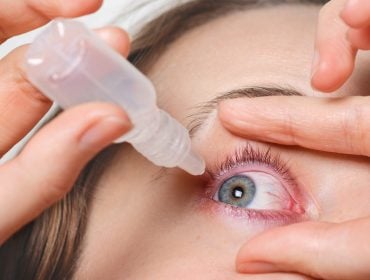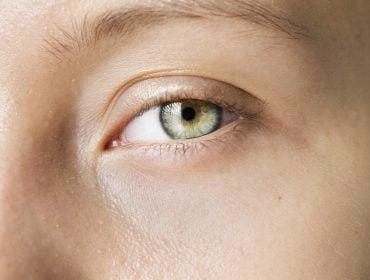Ingrown Hair Vs Herpes
Our guide will help you understand the difference between an ingrown hair vs herpes. I don’t know about you, but I’m someone who has always been very open with her body and what it does. I once told my mom that my butt had been itching, only to find out later that she thought I was telling her I had worms—but hey! We all grow up and learn how to communicate better with each other. So when it comes to letting your parents or friends know what is going on down there (or anywhere else), it helps to have the right language so they don’t think something is wrong with you!
What causes ingrown hair?
Ingrown hairs are a result of hair growing back into the skin. This can happen when you shave, wax or pluck and then the hair curls back in on itself, forming an ingrown hair.
Some cases of ingrown hairs are genetic so if your parents have the same issue with their facial or body hair then it could be something that runs in your family. If this is the case, it will be more difficult to prevent yourself from getting ingrown hairs as you get older because there’s nothing to really do about genetics but just make sure to take care of any existing ones!
What causes herpes?
Herpes is a common virus that can be transmitted through skin-to-skin contact. HSV-1, the virus that causes oral herpes, is spread by coming into contact with fluid from the mouth of an infected person. HSV-2, on the other hand, is typically contracted through sexual activity (including kissing). When you’re around someone who has herpes and their active symptoms begin to show—swollen blisters or sores on the skin—you will want to take extra care not to touch them until they’ve healed.

After someone recovers from an outbreak of herpes (which usually lasts about seven days), they are no longer contagious and cannot transmit it to others. However, since it’s possible for them not to realize they have genital herpes until symptoms appear later on in life (like during pregnancy), it’s important for both partners involved in sex to be tested before having unprotected sex together again.
Symptoms of ingrown hair or herpes
If you have an ingrown hair, you can expect to see redness and swelling around the area where your hair has grown inwards. It may also be accompanied by pain and itching. If this persists for more than a few days, it’s important to get it checked out by a doctor as soon as possible.
Ingrown hairs are treated with topical creams or ointments that help loosen up the ingrown hair so that it can be removed easily.
When to see a doctor for genital bumps and warts
- If you are concerned about a genital bump, wart, or other skin lesion.
- If you have pain or discomfort in the genital region.
- If the genital bumps and warts are new symptoms for you.
- If you have a fever of 101 Fahrenheit (38 Celsius) or higher regardless of whether it’s caused by an infection like herpes or not.
Diagnosing an ingrown hair and herpes
In order to correctly diagnose an ingrown hair, a doctor will use a magnifying glass to examine your skin. The doctor will look for signs of inflammation and redness, which can indicate an ingrown hair infection.
If you suspect that you have herpes sores, your doctor may swab the area with a cotton swab or Q-tip. This will collect any fluids from the area so they can be tested in their lab. If these tests come back positive for herpes simplex virus (HSV) then it’s safe to assume that those sores are indeed caused by HSV 1 or 2.
But what about when it comes down to treating these two conditions? There are plenty of remedies available to treat ingrown hairs—but not so many for genital herpes! For example: shaving and waxing don’t really work here because they can cause even more irritation on top of whatever discomfort you’re already experiencing from your condition itself; using medicated creams instead only works if your infection isn’t too severe yet (since otherwise there’s no point); antiseptic gels might help but won’t solve anything long term since those tiny cuts might still appear again after treatment ends…
Treatment options
Treatment for ingrown hairs and genital herpes is dependent on the severity of the symptoms. Treatment options for ingrown hairs include applying a mild topical anesthetic to soothe the area, then using a sterile needle to gently remove any hairs that are visible beneath the skin. In most cases, this will be enough to clear up your symptoms.
For genital herpes, you should contact your doctor as soon as possible if you’re experiencing any symptoms or signs of infection. Your doctor may prescribe antiviral medications such as acyclovir or valacyclovir in order to treat your condition and prevent any further complications from developing.

Genital Herpes Vs Ingrown Hair
Bumps, pimples and swollen skin near your genitals can cause pain, discomfort and concern. Both ingrown hairs and genital herpes can cause these symptoms so it’s best to get professional help to differentiate which one is causing your discomfort.
Ingrown hairs are caused by shaving or waxing the hair on your body while it’s still growing out after shaving or waxing. The hair curls around and grows back into the skin resulting in an infection. Genital herpes is caused by the herpes simplex virus (HSV-2). It causes blisters around the genitals or rectum during an outbreak but can also be asymptomatic between outbreaks.
Vaginal Herpes Vs Ingrown Hair
If you’ve been experiencing symptoms of an ingrown hair or genital herpes and are concerned about your diagnosis, it is best to get professional help. Your doctor can assist with the proper testing and treatment options including a herpes test from STDCheck.
Medically Reviewed by Gill Sellick, MBChB on August 1, 2022
Secure and Confidential
STD testing services
The fastest results possbile - available in 1 to 2 days

Tagged
Categorized As
Author: Esther Jordan
Esther Jordan has been a writer ever since she can remember. She has always loved the free gift of self-expression through journaling, creating stories, and sharing life experiences in front of audiences. Public speaking and creating content has been a strong suit of hers since high school. Immediately after college, she received a paid position as an search engine optimization (SEO) writer in 2010 when SEO was still a very brick and mortar concept for a lot of small businesses. It was a time of do-it-yourself websites and online magic that everyone wanted and either referred to it as SEO or pay-per-click (PPC).




